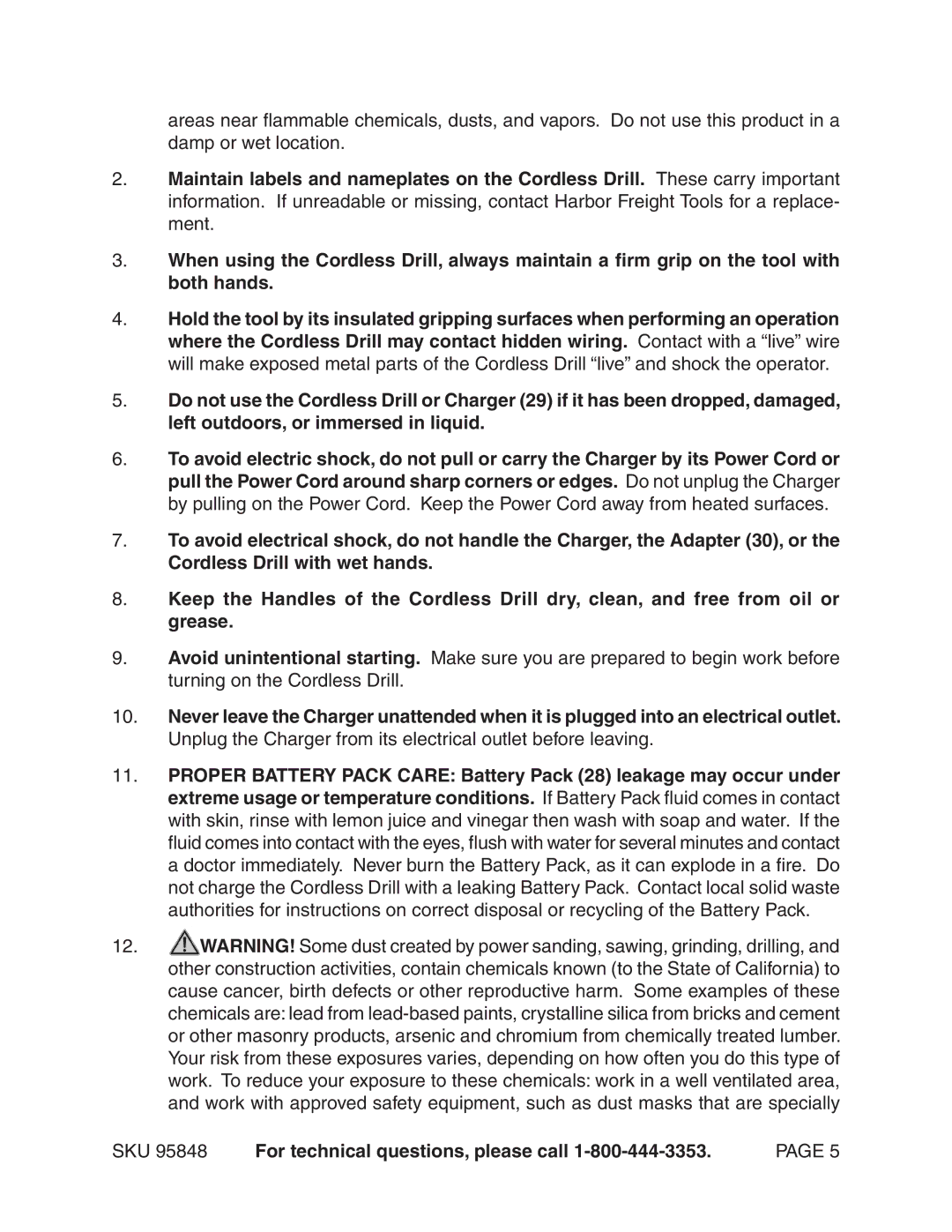areas near flammable chemicals, dusts, and vapors. Do not use this product in a damp or wet location.
2.Maintain labels and nameplates on the Cordless Drill. These carry important information. If unreadable or missing, contact Harbor Freight Tools for a replace- ment.
3.When using the Cordless Drill, always maintain a firm grip on the tool with both hands.
4.Hold the tool by its insulated gripping surfaces when performing an operation where the Cordless Drill may contact hidden wiring. Contact with a “live” wire will make exposed metal parts of the Cordless Drill “live” and shock the operator.
5.Do not use the Cordless Drill or Charger (29) if it has been dropped, damaged, left outdoors, or immersed in liquid.
6.To avoid electric shock, do not pull or carry the Charger by its Power Cord or pull the Power Cord around sharp corners or edges. Do not unplug the Charger by pulling on the Power Cord. Keep the Power Cord away from heated surfaces.
7.To avoid electrical shock, do not handle the Charger, the Adapter (30), or the Cordless Drill with wet hands.
8.Keep the Handles of the Cordless Drill dry, clean, and free from oil or grease.
9.Avoid unintentional starting. Make sure you are prepared to begin work before turning on the Cordless Drill.
10.Never leave the Charger unattended when it is plugged into an electrical outlet. Unplug the Charger from its electrical outlet before leaving.
11.PROPER BATTERY PACK CARE: Battery Pack (28) leakage may occur under extreme usage or temperature conditions. If Battery Pack fluid comes in contact with skin, rinse with lemon juice and vinegar then wash with soap and water. If the fluid comes into contact with the eyes, flush with water for several minutes and contact a doctor immediately. Never burn the Battery Pack, as it can explode in a fire. Do not charge the Cordless Drill with a leaking Battery Pack. Contact local solid waste authorities for instructions on correct disposal or recycling of the Battery Pack.
12.![]() WARNING! Some dust created by power sanding, sawing, grinding, drilling, and other construction activities, contain chemicals known (to the State of California) to cause cancer, birth defects or other reproductive harm. Some examples of these chemicals are: lead from
WARNING! Some dust created by power sanding, sawing, grinding, drilling, and other construction activities, contain chemicals known (to the State of California) to cause cancer, birth defects or other reproductive harm. Some examples of these chemicals are: lead from
SKU 95848 | For technical questions, please call | PAGE |
